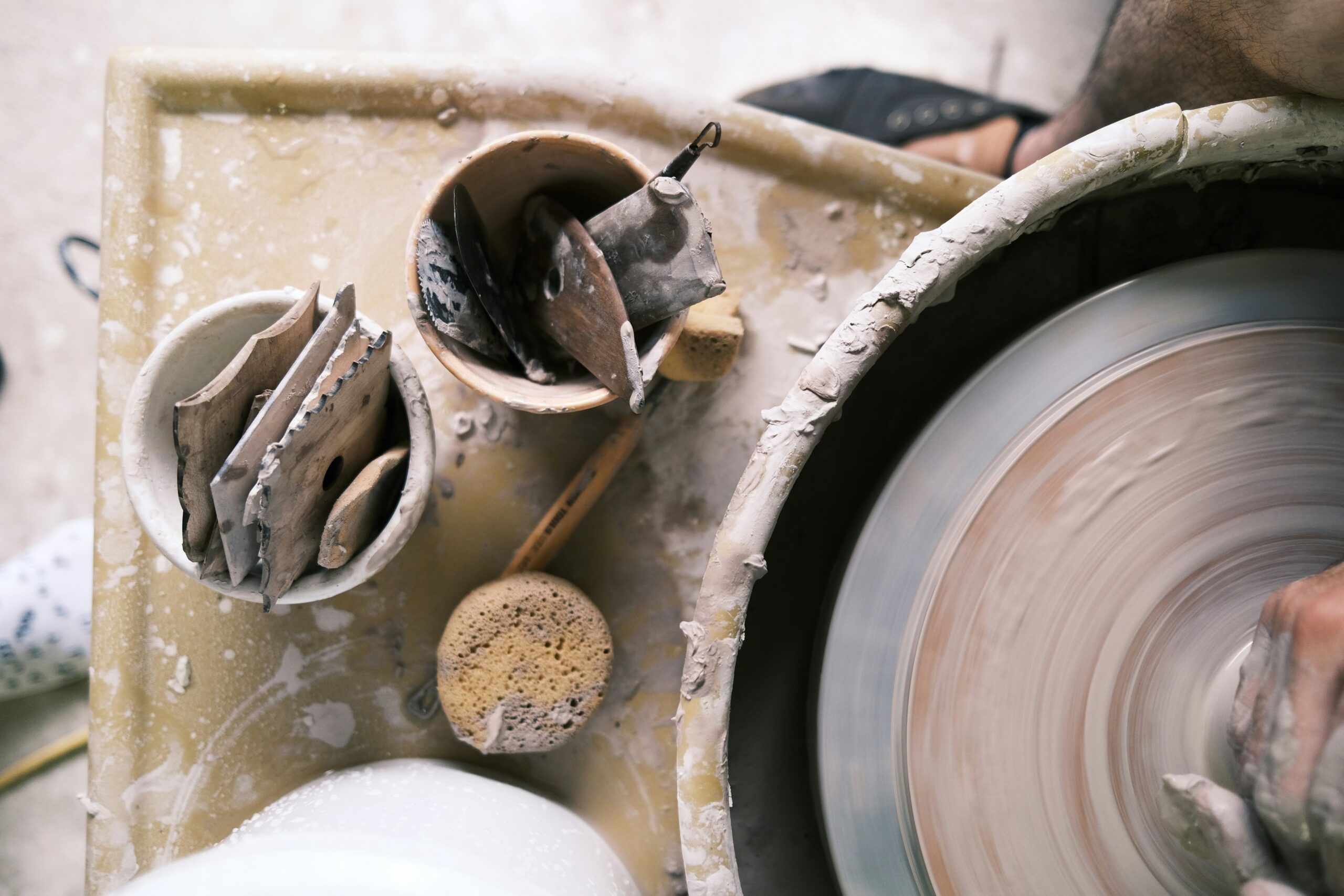1% and the Potter
In a village known for its artistry, two young potters—Lina and Marek—set out to master their craft and someday become the Royal Artisan, a title passed only once a generation.
The village mentor, an old woman named Kora, gave them both the same advice:
“Perfection is not born in a day. Focus instead on being slightly better, every single day. Success is a bamboo shoot—it grows unseen, then rises with force.”
Marek scoffed. “If I’m to be the best, I need to revolutionize my process. One breakthrough is all it takes.”
He spent his days sketching wild designs, researching exotic techniques, and waiting for inspiration. Weeks passed without a single pot. “I’m not wasting time on small things,” he told himself. “Only big changes matter.”
Lina, however, took Kora’s advice to heart.
Each morning, she chose one small thing to improve:
- One day, she adjusted her posture to reduce strain.
- The next, she organized her tools for quicker access.
- Another day, she tweaked the kiln temperature by just two degrees.
- Later, she tested new glazes, logged drying times, and refined her clay mixtures.
No change was dramatic. But each was deliberate. Just 1% better, every day.
By the end of the first month, her workspace was efficient, her hands quicker, her pots stronger. Within six months, customers whispered about her work. “It’s not just beautiful,” they said, “It feels alive.”
A year later, the Royal Artisanship contest arrived. Marek submitted a single, extravagant vase—a bold but flawed attempt at brilliance.
Lina arrived with a series of pieces—each elegant, functional, and deeply refined. Her craftsmanship had matured through hundreds of invisible victories.
The judges were unanimous: Lina’s work was not the result of genius, but of relentless, quiet progress.
Moral and Leadership Lesson
Great success doesn’t come from one giant leap, but from hundreds of tiny steps. Like the British Cycling team, who found victory by improving everything—bike seats, pillow quality, handwashing technique—Lina became extraordinary through the aggregation of marginal gains.
As James Clear writes, “Habits are the compound interest of self-improvement.” Just as a bamboo grows roots for years before it shoots skyward, daily 1% improvements, when compounded, can lead to unimaginable success.
Choose to get a little better each day—and soon, you’ll be unrecognizably great.
Recap: Key Lessons
1. Small Improvements Compound Over Time
Like Lina’s daily tweaks and adjustments, tiny improvements seem insignificant day to day, but over time they produce exponential results—this is the essence of compound growth in habit formation.
📌 “Success is the product of daily habits—not once-in-a-lifetime transformations.” – James Clear
2. Perfection is the Enemy of Progress
Marek waited for the “big breakthrough,” but in doing so, he stalled. Progress doesn’t require dramatic innovation—it just requires consistent forward motion.
✅ Start small. Done consistently beats perfect occasionally.
3. Systems Beat Goals
Lina didn’t just aim for a perfect vase—she built a system for consistent learning and execution. A goal is the result; a system is the process that gets you there.
🎯 Don’t just set goals; design habits and environments that move you toward them.
4. Excellence is Built, Not Found
Mastery is the accumulation of well-practiced fundamentals. Lina’s world-class craft came from repeated attention to tiny, often invisible details.
🔍 Excellence is the result of repeating simple things, consistently and deliberately.
🛠️ Practical Steps to Start Improving by 1% Daily
Here are six actionable strategies you can begin today:
1. Identify Key Areas of Your Life or Work
Pick one domain (health, career, learning, relationships, etc.) where small improvements would have a big impact.
🧭 “Where can I make small, daily progress that will compound over time?”
2. Track Small Wins
Start tracking small actions. It could be reading 1 page, doing 5 pushups, writing 50 words. This builds momentum.
✍️ Use a habit tracker, journal, or app like Habitica, Streaks, or Loop Habit Tracker.
3. Focus on Process, Not Outcomes
Instead of saying, “I want to lose 10 pounds,” say, “I will walk for 10 minutes every morning.”
⚙️ Process = Repeatable, action-oriented behavior.
4. Make It Easy to Succeed
Reduce friction. If your goal is to read more, keep a book on your pillow. Want to exercise? Set out your gym clothes the night before.
🧠 Design your environment to support better behavior.
5. Use the 2-Minute Rule
If a new habit feels hard, shrink it. Do the first 2 minutes only. Building consistency matters more than intensity at first.
⏱️ “Read 1 page” is better than “read for 30 minutes” if it gets you started.
6. Reflect and Refine Regularly
Every week, ask:
- What did I improve?
- What’s one small thing I could do better next week?
🔁 Reflection turns motion into mastery.
🌱 Final Thought
The difference between those who grow and those who stay stuck often comes down to the humble commitment to daily 1% improvements. You won’t feel it immediately—but in a year, like Lina, you might look back and not recognize who you used to be.
July 8, 2025

View comments
+ Leave a comment